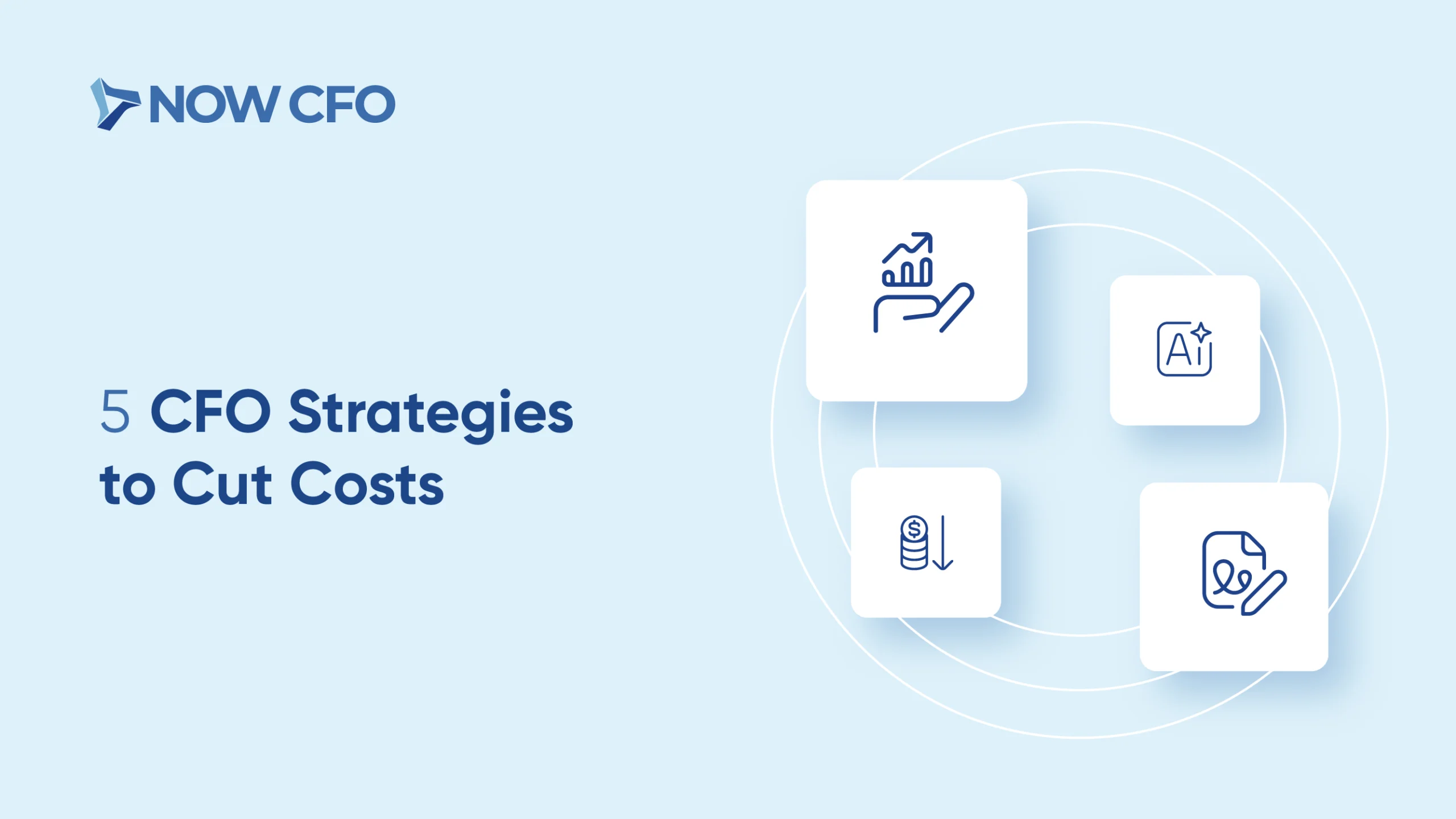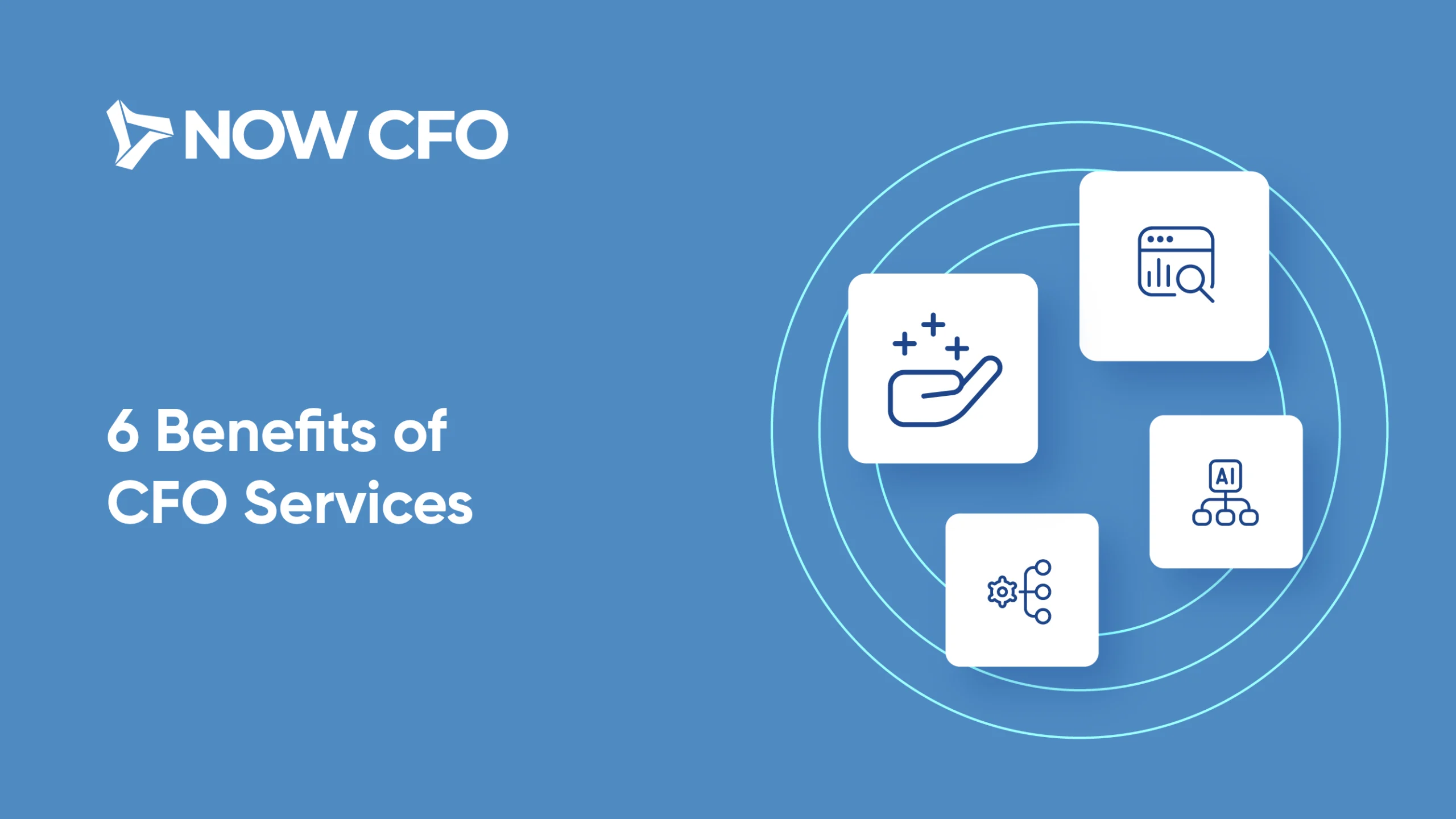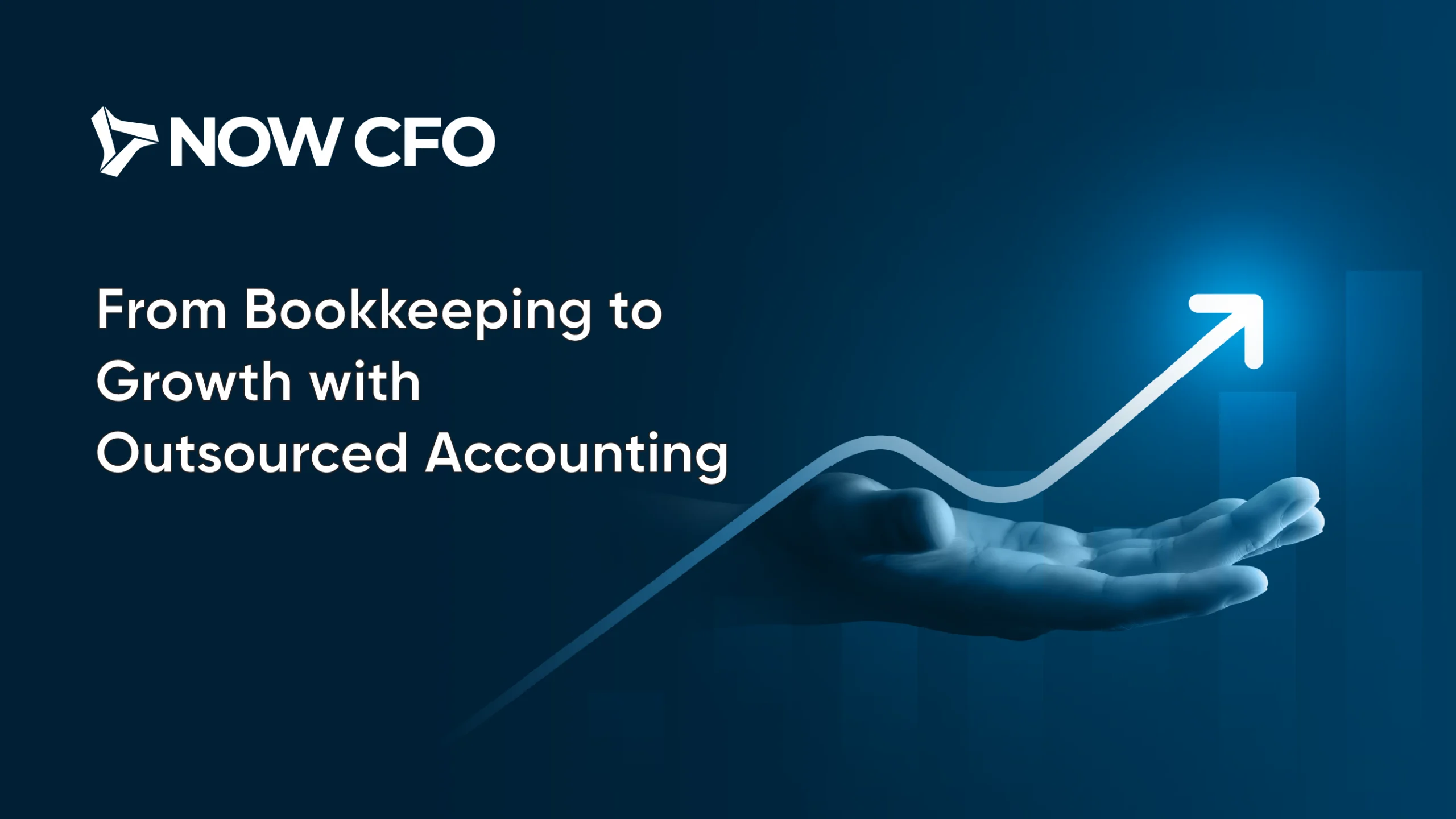
Beyond simple bookkeeping, strategic outsourced accounting is a growth engine that empowers SMEs to scale confidently. As businesses expand, they need advisory support, accurate forecasting, and KPI tracking areas where outsourced partners excel.
What is Strategic Outsourced Accounting?
Outsourced accounting delivers strategic insight, control, and foresight as companies scale. When embraced strategically, three core capabilities make clear how outsourced accounting fuels growth.
1. Moving Beyond Transactional Bookkeeping
Outsourced accounting no longer stops at bookkeeping. Instead, providers handle everything from AP/AR and payroll to general ledger reconciliation. This shift reduces overhead and frees your internal team.
37% of SMEs already outsource business operations, and more than half are in the planning phase. Businesses can redirect internal attention toward strategic planning and growth by migrating transactional workload.
2. Integrating Advisory into Accounting Services
Strategic outsourced accounting includes advisory as an integrated service, not an add-on. They offer budgeting guidance, forecasting, variance analysis, and KPI creation. They bring in CFO-level insights without hiring full-time leadership.
This alignment ensures that forecasts and budgets guide hiring, investment, and product expansion decisions. Integrating advisory allows executives to rely on the outsourced partner for proactive guidance rather than retroactive reporting.
3. Real-Time Data for Decision-Making
Modern outsourced providers equip clients with live dashboards and real-time reporting. You gain insight into liquidity trends, burn rate, margins, and KPIs at a glance. Data-driven decision-making improves when leaders access verified metrics instantly.
Use tools that update daily or hourly so your leadership team can act fast. Real-time clarity becomes a competitive edge while making decisions.
Key Benefits of Strategic Outsourced Accounting
Each benefit of outsourced accounting directly supports scalability, clarity, and financial discipline.
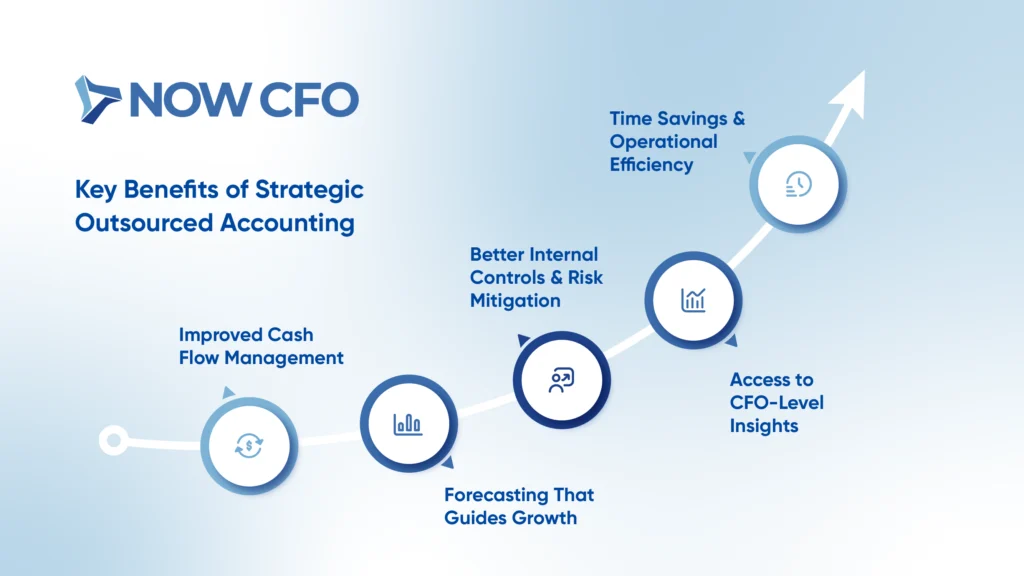
Improved Cash Flow Management
When correctly managed, cash flow underpins every expansion decision. Strategic outsourced accounting enhances cash management through:
- Detailed cash flow forecasting and planning, enabling you to foresee shortages or surpluses and allocate resources wisely.
- Quicker receivables and collections, reducing days sales outstanding so you maintain liquidity and avoid short-term financing gaps.
Forecasting that Guides Your Growth Trajectory
With strategic outsourced accounting, forecasting isn’t optional. Providers enable:
- Rolling budgets and predictive forecasts that adapt as your business evolves
- Scenario planning aligned with growth assumptions such as hiring, new product formats, or entering new markets
Better Internal Controls and Risk Mitigation
Implementing strong controls is essential, and outsourced partners help by:
- Segregation of duties and independent review, reducing fraud and errors by ensuring separate roles for data entry, approval, and reporting.
- Consistent compliance checks and variance analysis, identifying anomalies before they escalate, with advisory support built into the process.
Access to CFO-Level Insights Without Full-Time Cost
You gain strategic leadership without the full expense of an in-house CFO. Outsourced services provide seasoned financial executives on demand.
Time Savings and Operational Efficiency
Strategic outsourcing accelerates processes and reduces administrative burden. They streamline task flows using automation and modern systems, freeing up in-house resources.
Outsourced accounting functions execute tasks faster than internal teams, freeing up your staff’s time for strategic work. Efficiency gains enable operational scalability, reduced bottlenecks, and sharper execution.
When Business Outgrows Basic Bookkeeping
As a scaling company evolves, the limits of basic bookkeeping become evident. It is essential to recognize when outsourced accounting needs to deliver beyond compliance. IRS research shows businesses spend up to 82 hours per year and $2,900 on tax preparation activities.
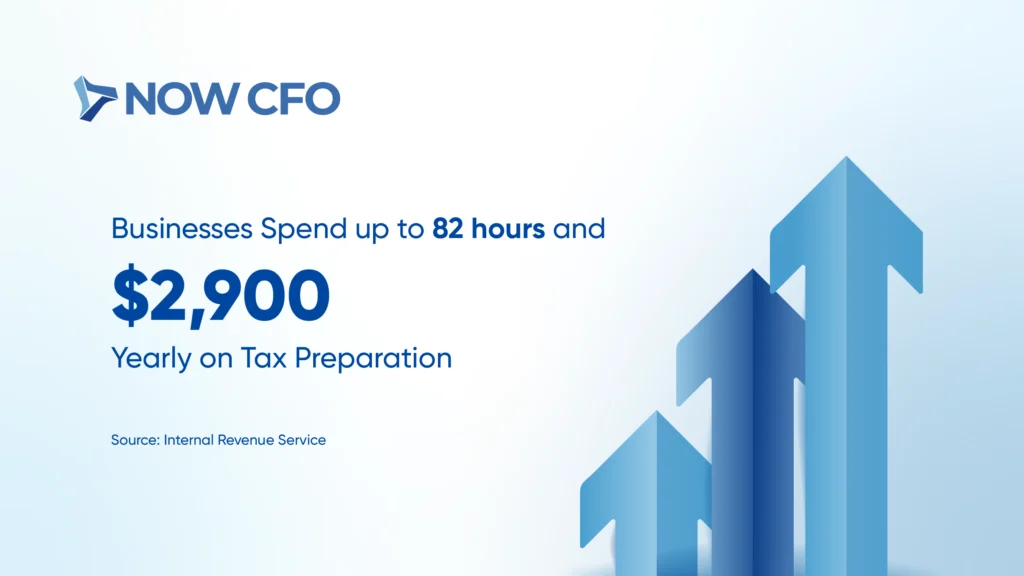
Indicators You Need More Than Compliance
As complexity increases, you need more than compliance-level outsourced accounting. Basic bookkeeping falls short when you require proactive financial insight, start scaling, or navigate complex transactions.
Look for these signals: reported account discrepancies, frequent cash shortfalls despite revenue, and questions about financial ratios or KPIs. These escalating needs mark the transition from simple bookkeeping to strategic outsourced accounting.
Growing Complexity in Payroll, Tax, and Reporting
When regulatory and reporting burdens rise, outsourced accounts step in to manage:
- Use of multiple payroll schedules, benefits structures, and contractor classifications increases risk and errors.
- Evolving tax code requires expert handling to avoid penalties.
- Expanded reporting needs beyond standard ledger entries.
The Demand for Financial Visibility in Scaling Startups
As startups scale, leadership demands timely and accurate financial visibility. With outsourced accounting, strategic partners deliver dashboards, monthly financial packages, and variance analysis that align with board expectations.
This supports fundraising, investor relations, and KPI tracking while clarifying burn rate, margins, and cash runway. Startups often face rapid changes; outsourced accounting ensures leaders see evolving metrics and can adapt strategy quickly.
The Role of an Outsourced Accounting Partner in Business Strategy
Strategic outsourced accounting embeds deeply into your business strategy.
Helping Set and Monitor Financial KPIs
Outsourced accounting partners help define and track critical KPIs aligned with your growth strategy. They establish leading metrics and lagging indicators such as net margin or cash runway.
With this structure, leadership gains clarity on performance, enabling proactive decision-making. This strategic KPI oversight turns routine data into actionable insight, a key advantage when leveraging outsourced accounting.
Supporting Capital Raise and Funding Prep
As your business prepares to raise capital, outsourced partners support fundraising readiness through several actions:
- They compile clean financial statements, adjusted EBITDA, and forecast models tailored to investor expectations.
- Outsourced accountants manage documentation and due diligence checklists, ensuring compliance with regulatory and investor scrutiny.
- They refine pitch financials and scenario forecasts to illustrate runway, growth projections, and use of funds.
Preparing for Audits and Due Diligence
Outsourced accounting partners routinely set up audit-ready processes and provide documentation that supports due diligence.
- They maintain consistent documentation and reconciliation trails for key accounts, ensuring transparency and audit readiness.
- They conduct periodic internal reviews and variance analyses to spot anomalies before external scrutiny.
Aligning Accounting with Overall Business Goals
Your outsourced accounting partner integrates financial workstreams with your broader objectives. They help connect budget forecasts to operations strategy, guiding resource allocation and investment based on real-time insights.
By aligning accounting with goals, they ensure the finance function acts as a strategic compass, not just a reporting tool. Through this alignment, a strategic outsourced accounting partner delivers tangible value across planning, execution, and growth initiatives.
How Outsourced Accounting Enables Scalable Growth
As your business expands, scaling finance operations efficiently becomes vital. Strategic outsourced accounting enables growth by evolving financial functions alongside revenue.
Building Processes that Scale with Revenue
To support faster growth, outsourced accounting partners design finance workflows that adapt as revenue increases. Key scalable processes include:
- Tiered transaction volumes, including additional bank accounts, more customer invoices, and expanded accounts payable workflows managed seamlessly.
- Standardized month-end close cycles, enabling consistent reporting regardless of transaction volume or geographic footprint.
- Scalable documentation and audit frameworks, ensuring controls expand proportionally with business complexity and transaction count.
Leveraging Automation and Tools for Growth
Automation brings speed and accuracy, which are critical for businesses scaling rapidly. Key tools and automations include:
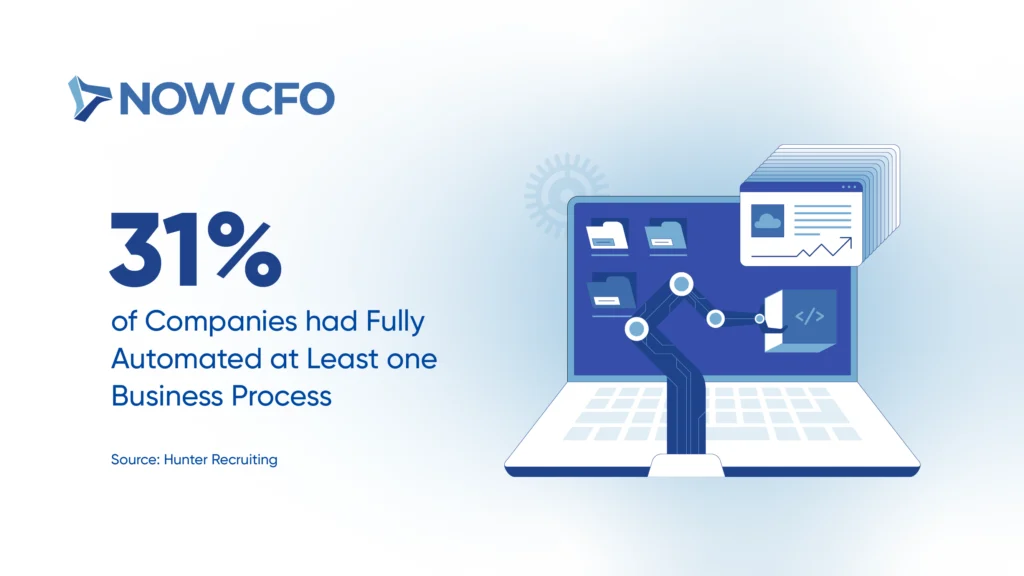
- RPA and cloud-based workflows that remove manual data entry and reconciliation tasks. 31% of companies had fully automated at least one process by 2020, a number that continues rising.
- AI-powered analytics and predictive insights, used to flag anomalies, forecast cash trends, or suggest operational optimizations.
- Integrated dashboards and reporting modules, offering real-time financial visibility and alert triggers for KPI thresholds.
On-Demand Access to Experts at Every Growth Stage
As your company grows, you benefit from immediate access to a wide bench of financial expertise. Outsourced accounting firms provide built-in flexibility. You engage senior-level strategic advisors, controllers, or virtual CFOs on demand, without long-term payroll costs.
Common Myths About Outsourced Accounting
Misconceptions often hold business leaders back from recognizing how outsourced accounting fuels growth.
“It’s Just for Bookkeeping.”
Many assume outsourced accounting is limited to basic bookkeeping tasks, but that perception underrates its scope. Providers deliver advisory services, forecasting, KPI tracking, and strategic guidance.
With CFO-level insights, outsourced teams contribute to decision-making, budgeting, and financial controls. This myth ignores the strategic outsourced accounting dimension and undervalues business growth with accounting outsourcing, which envelops forecasting, capital planning, and proactive financial strategy.
“You Lose Control of Your Finances.”
Outsourcing can feel like handing over control, but strategic models enhance visibility and oversight.
- Your company retains ultimate fiscal responsibility; the partner implements controls, dashboards, and variance reviews to keep you informed.
- Transparent workflows and real-time reporting ensure you stay fully apprised of finances, while providers act as advisors, not gatekeepers.
“It’s Only for Small Businesses.”
Many believe outsourced accounting suits only small companies, but increasingly, scaling mid-sized firms and startups leverage it. Strategic outsourced accounting scales alongside revenue, offering fractional CFO services, audit support, and advisory services tailored to growing enterprises.
Finding the Right Partner for Strategic Outsourced Accounting
Choosing a partner with the right mix of expertise, trust, and alignment ensures your outsourced accounting drives growth. Below are essential traits, questions, and expectation-setting to evaluate potential providers.
Key Traits to Look for in an Accounting Partner
When selecting a strategic provider, these attributes distinguish high-performing partners:
| Trait | Why it Matters | Example |
|---|---|---|
| Established Process & Documentation | Ensures consistency and accuracy as your business scales | Firms that standardize workflows cut errors and close faster |
| Experienced and Diverse Team | Access to CFO-level insight and specialized knowledge, without hiring full-time | 80% of investor-backed CFOs partner for reporting accuracy and bench strength |
| Scalability & Flexibility | Provider adapts services as your transaction volume and complexity increase | Focus on core functions is the primary outsourcing benefit |
| Advanced Technology & Security | Supports automation and ensures data protection through cloud tools and audit tracing | Use of modern platforms supports proactive KPI management and compliance |
Questions to Ask During the Evaluation Process
Before engaging, use the following questions to evaluate fit and alignment:
- What is your experience serving companies similar in size, industry, or growth stage?
- Can you share references and case studies that demonstrate success in strategic outsourced accounting?
- How do you structure your team for new clients who lead forecasting, reporting, and advisories?
- What documented workflows, KPIs, and toolsets do you use to ensure timely and accurate delivery?
- How do you secure financial data? What encryption, backup, and compliance standards are in place?
- How will you measure ROI and outcomes of your services? Are performance benchmarks part of your service model?
- What are your standard SLAs: timelines, deliverables, service scope, and escalation protocols?
Setting Expectations for Communication and KPIs
Clear communication and aligned metrics are foundational to a successful partnership. Early in the engagement, establish a reporting cadence (e.g., weekly dashboards, monthly closes), define KPIs (cash runway, margin, burn rate, revenue per customer), and hold regular review meetings.
Agree on responsibility for discrepancies or anomalies, and the escalation path for urgent queries. Confirm access (real-time dashboard, data portal) and communication channels (dedicated account lead, response SLAs).
Conclusion
Entrusting your finance function to a strategic outsourced accounting partner transforms it into a driver of growth, not just a cost center.
If you’re looking to elevate your accounting operation, the right partner can make all the difference. Schedule a complimentary discovery session with NOW CFO experts. Contact us to assess your needs and explore how strategically outsourced accounting can help your business scale smarter, faster, and with more confidence.

